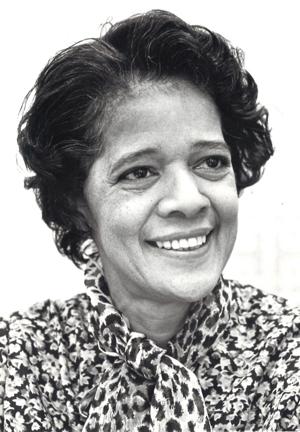

Wisconsin has been influencing national policy for more than 100 years. In this podcast, we’ll explore the history of Wisconsin politics, what politics looks like in the state today, and what that means for our future...
...more...Among the marchers was Vel Phillips, the first Black alderperson and the first woman alderperson in Milwaukee. She kept the pressure on the otherwise all white, all male Common Council to pass legislation to outlaw racial discrimination in housing.
"Nobody is free until everybody is free, and we intend to march, all of us, until we get just some of the basic freedoms that are ours," Phillips said.
Phillips first proposed a fair housing bill in Milwaukee in 1962 — she was the only vote in support. Three years later, Wisconsin would sign its own, watered-down version of a fair housing bill, that excluded the majority of the housing stock in Milwaukee. In 1968 the federal Fair Housing Act was passed in Congress, which mirrored Phillips’ initial proposal.
A newscast from that time: "The Civil Rights Act of 1968 included in the measure was a landmark open housing bill, which, when fully effective, would forbid discrimination in approximately 80% of all housing offered for rent or for sale in the United States.
"Fair housing for all, all human beings who live in this country, is now a part of the American way of life," President Lyndon B. Johnson said.
But while President Johnson and the Milwaukee marchers hailed the Fair Housing Act for the victory it was, economic forces would soon undermine its lasting material impact....
Share this article on your social outlets
Our Sponsors
- - Volume: 24 - WEEK: 18 Date: 5/3/2024 12:24:34 PM -